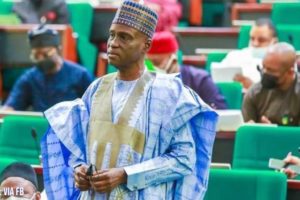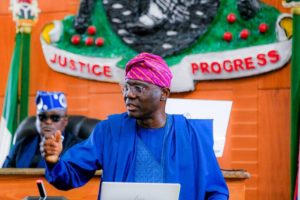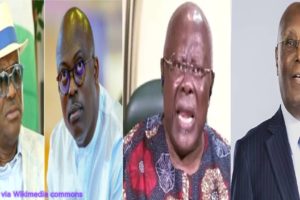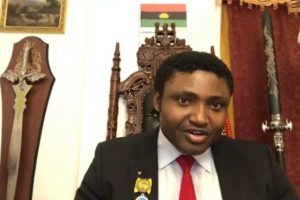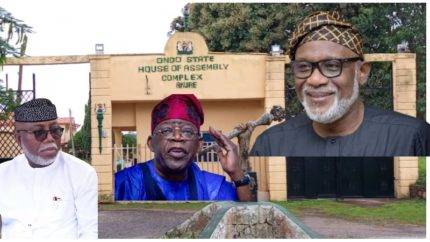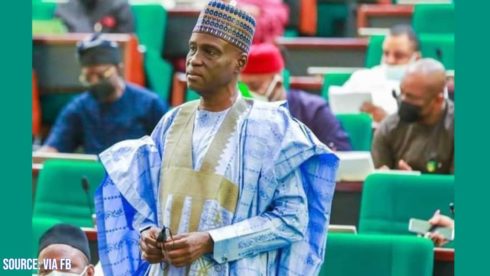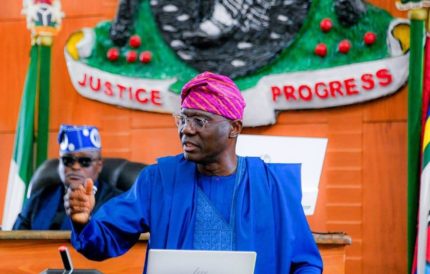President Tinubu has recently issued a groundbreaking directive to the Ondo State House of Assembly, commanding the swift transfer of power to Deputy Governor Lucky Aiyedatiwa. This unexpected development has created ripples across Ondo’s political arena, introducing a paradigm shift in leadership dynamics. The President’s call for an immediate and unconditional transfer, anchored in the “Doctrine of Necessity,” adds a layer of complexity to the unfolding situation, leaving both political observers and citizens intrigued by the implications of this bold move.
In this surprising turn of events, the unprecedented nature of President Tinubu’s directive underscores the gravity of the decision and its potential impact on the governance of Ondo State. As discussions surrounding the “Doctrine of Necessity” gain prominence, the unfolding dynamics raise questions about the underlying circumstances prompting such a move. This development not only captures attention for its uniqueness but also sets the stage for a closer examination of the legal and political implications, making it a focal point in the ongoing narrative of Ondo State’s political landscape.
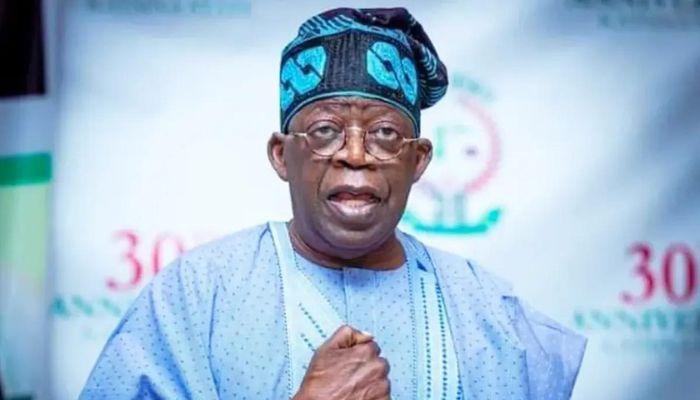
The Doctrine of Necessity: A Strategic Legal Maneuver
President Tinubu‘s adept use of the “Doctrine of Necessity” carries significant legal and political implications. This strategic maneuver, deeply embedded in constitutional law, serves as a crucial tool for navigating complex scenarios, particularly in the realm of power transitions. The doctrine contends that when an action is deemed essential for the greater good, and there are no viable alternatives, it stands as a lawful and justifiable course of action. In invoking this doctrine, President Tinubu demonstrates a commitment to upholding constitutional principles while facilitating a seamless transfer of power. The intended result is a well-managed transition, allowing Deputy Governor Aiyedatiwa to step into his role seamlessly, ensuring continuity and stability during Governor Akeredolu’s medical leave.
Ensuring Smooth Transitions: The Political Landscape
President Tinubu’s use of the Doctrine of Necessity not only showcases legal acumen but also addresses the intricate political dynamics surrounding power transitions. The invocation of this doctrine underscores a commitment to stability and governance continuity in critical situations. By enabling Governor Akeredolu to take a necessary medical leave, President Tinubu navigates the political landscape adeptly, fostering an environment that prioritizes the well-being of key leaders while maintaining the functionality of the government. This dual legal and political strategy aims to strike a delicate balance, demonstrating leadership foresight and a commitment to the greater good in navigating the complexities of both legal frameworks and political realities.
Deputy Governor Lucky Aiyedatiwa: A Rising Political Figure
In the political landscape of Ondo State, Deputy Governor Lucky Aiyedatiwa emerges as a pivotal figure, poised to navigate the state through a crucial period of transition. As anticipation builds around his upcoming interim leadership role, political analysts are meticulously dissecting Aiyedatiwa’s background and evaluating the potential reverberations of his governance on the region. Aiyedatiwa’s unwavering commitment to public service stands as a testament to his character, setting the stage for a leadership stint marked by dedication and resilience.
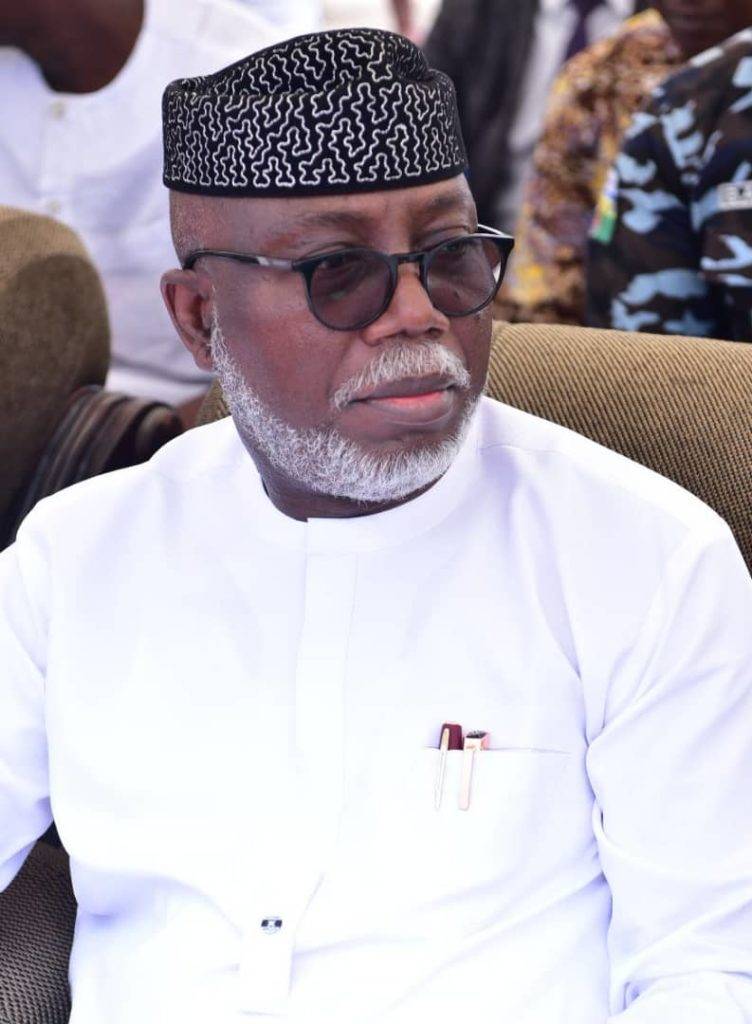
Amidst the unforeseen challenge posed by Governor Akeredolu’s medical leave, Aiyedatiwa’s mettle will be tested as he steps into the spotlight. The intersection of his political astuteness and administrative prowess becomes a focal point, as he grapples with the responsibilities inherent in governing the state. This period of leadership transition not only showcases Aiyedatiwa’s rising prominence but also underscores the significance of his role in maintaining stability and continuity within Ondo State’s political landscape.
Ensuring Leader Well-being in Governance
Governor Akeredolu’s recent decision to embark on a medical leave serves as a poignant reminder of the integral connection between the health of public officials and effective governance. By prioritizing his well-being, Governor Akeredolu exemplifies the responsibility leaders bear not only in executing their duties but also in maintaining the physical and mental resilience necessary for sound decision-making. This resonates with an evolving societal awareness that emphasizes leaders’ health as a crucial factor in ensuring sustained public service. As the Governor steps aside temporarily, concerns naturally arise about the potential impact on Ondo State’s governance, prompting a collective reflection on the broader implications of leaders’ health choices.
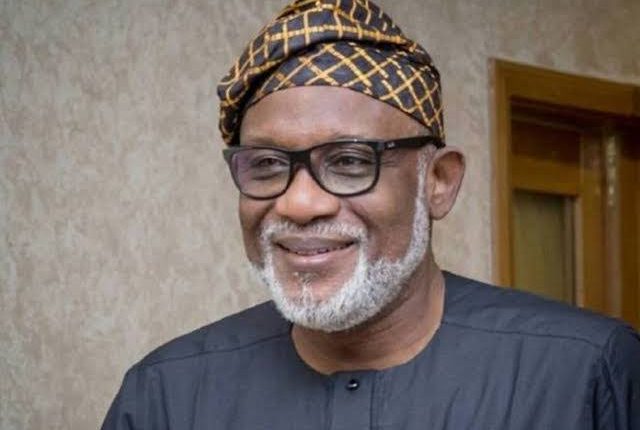
The announcement of Governor Akeredolu’s medical leave has sparked inquiries into the intricate intersection of his health and its potential consequences for governance. Citizens and political stakeholders alike eagerly seek information regarding the specifics of Akeredolu’s health condition and the anticipated duration of his absence. The resulting uncertainty injects a sense of urgency into the situation, raising questions about the stability and continuity of Ondo State’s leadership during this period. The need for clarity on the governor’s health is paramount, shaping perceptions and setting expectations for both the immediate and long-term trajectory of the state. This pivotal moment underscores the delicate balance between personal well-being and public duty, with potential ramifications reverberating throughout the fabric of Ondo State’s governance.
Navigating Uncharted Political Waters in Ondo State
In the midst of an unprecedented political landscape in Ondo State, the dynamics of power transfer become a focal point of speculation and analysis. As the region grapples with this shift, there is heightened anticipation regarding potential future scenarios and their lasting implications. Analysts are diligently examining whether these political changes will send ripples through upcoming elections, reshape party dynamics, and alter the overall trajectory of the state’s political landscape. This nuanced evaluation not only requires an understanding of the current power dynamics but also demands a keen anticipation of the uncertainties, particularly surrounding Governor Akeredolu’s health, which adds an extra layer of complexity to the ongoing political discourse.
The health status of Governor Akeredolu emerges as a critical factor shaping ongoing political discussions in Ondo State. The uncertainty surrounding his well-being amplifies the complexity of the political landscape, creating a unique and pressing concern. As speculation mounts, the potential long-term impacts of the governor’s health on party politics, governance, and electoral dynamics come under scrutiny. This multifaceted analysis not only delves into the immediate consequences of the political transition but also sets the stage for a broader exploration of how these uncertainties might influence the state’s political future. In navigating these uncharted waters, stakeholders and citizens alike are closely watching, seeking insights into the intricate interplay of political forces and the unfolding scenarios that will shape the destiny of Ondo State.
Table of Contents
Discover more from OGM News NG
Subscribe to get the latest posts sent to your email.

